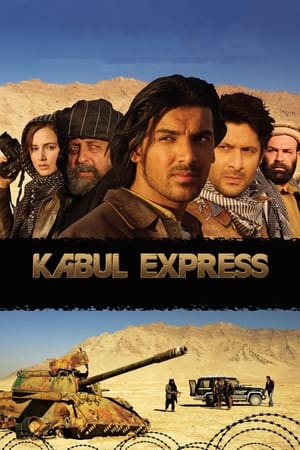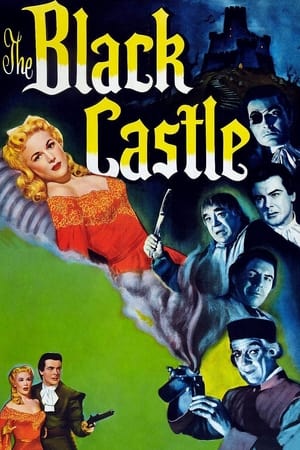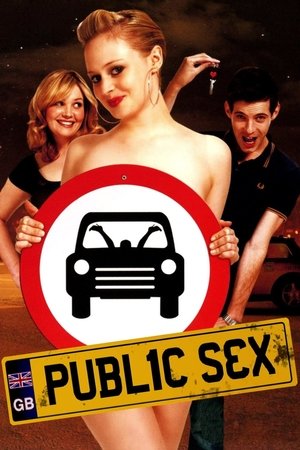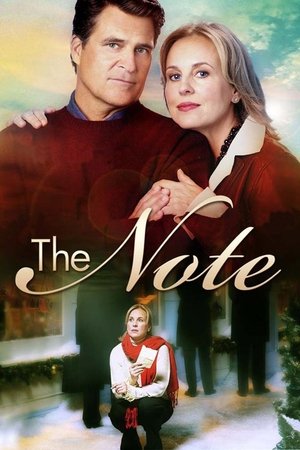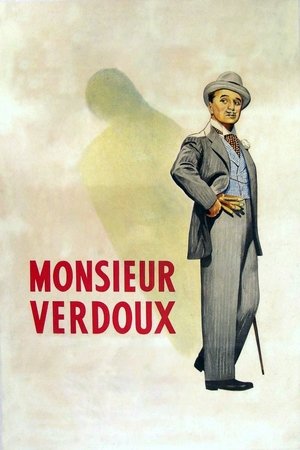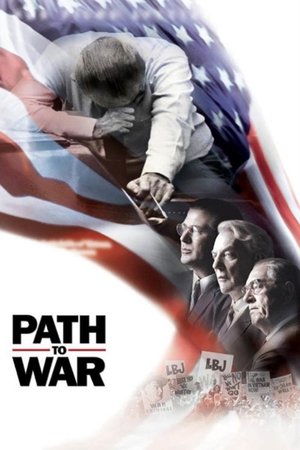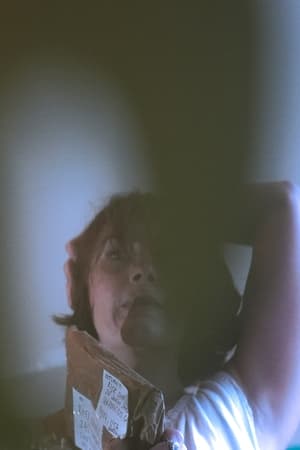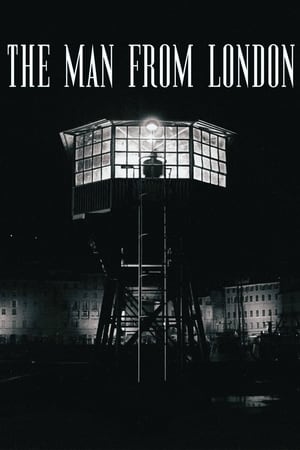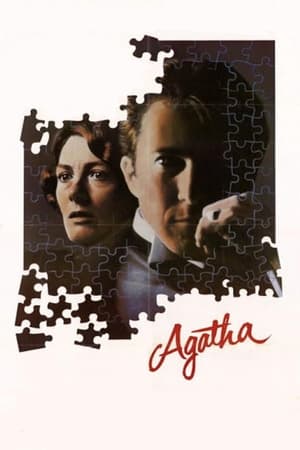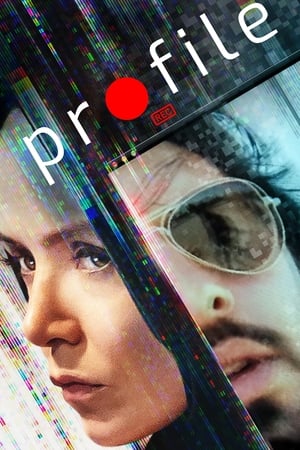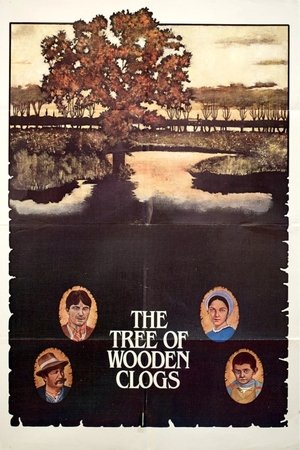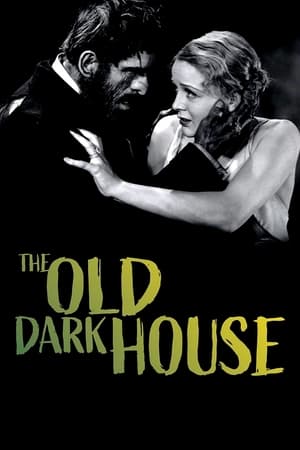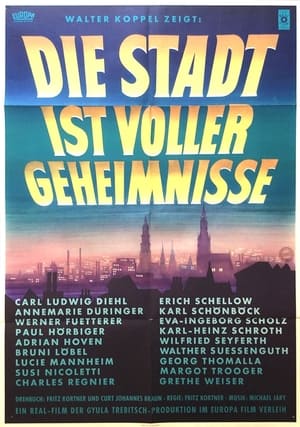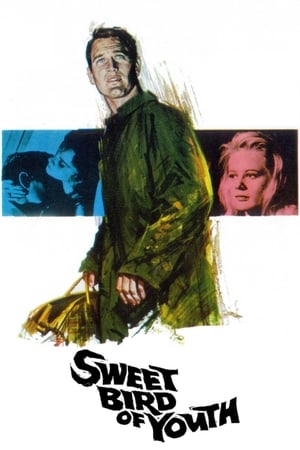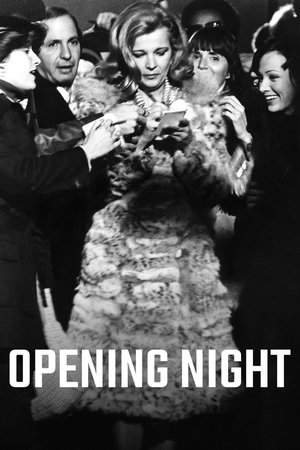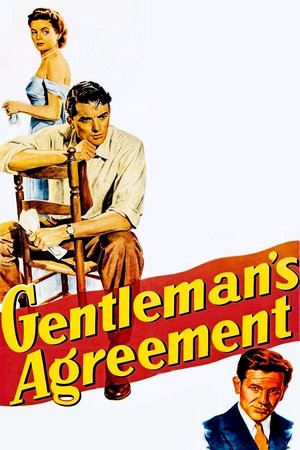Overview
Newspaper magnate Charles Foster Kane is taken from his mother as a boy and made the ward of a rich industrialist. As a result, every well-meaning, tyrannical or self-destructive move he makes for the rest of his life appears in some way to be a reaction to that deeply wounding event.
Reviews
"The Greatest Movie of All Time!" That's the general opinion of this movie, and I agree that it is a great movie, but I have seen better movies.
The story of Citizen Kane is simple, a newspaper tycoon named Charles Foster Kane (Orson Welles) dies, and his last word is "Rosebud". No one knows what it means, and a reporter starts interviewing people Kane knew, to see if they know the meaning of "Rosebud". Through flash-backs we get to see Kane's life.
Now, as I said, I don't agree that it's the greatest movie of all time, however it's great. I love this movie. It's a daring and controversial movie of its time, and it introduced alot of new technices in filmmaking. The acting is superb! Orson Welles as Kane is breathtaking, Joseph Cotten as Jed Leland is great. There's one performance I can hardly stand though and that's Dorothy Comingore's performance as Susan Alexander. Hideous performance to say the least! The writing is amazing, and Welles' directing is out-of-this-world!
In conclusion, great movie (however not the greatest ever made). It's definitly a movie you need to watch!
I give it a 9/10
I fondly recollect, growing up in Canada in the 70's and 80's, my mom taking my older sister and I to the cinema (my dad was more interested in watching bowling, hockey, or either crime shows, British sitcoms or hockey on TV). Despite all of his TV appearances over the years, and films he acted in to fund his own productions, the first time I was aware of Orson Welles was one of those startling and bizarrely professional yet unmistakably charismatic 'Paul Masson' wine commercials that they tend to make fun of on The Simpsons in these decades gone by. My first thought was 'that voice is amazing', then 'he looks like he'd be a fine grandfather or Santa Claus', and I instantly wanted to know who he was: Just the way he carried himself, I knew he must be both brilliant and someone who was really important.
As you can tell, I'm not going to unnecessarily repeat all the endless accolades this film has gotten over the years. If you're any type of film lover, you have either seen this or will eventually--unless you're hit by a bus tomorrow (Heaven forbid) or something else drastic. It's a hallmark of what is possible in cinema. I waited until I was 46 to see this, because of its stellar reputation. It's not my favourite Welles--either acting or directing, and not by a long shot in either regard--but I'm very glad that I finally saw it, and I'll probably revisit it every couple of years for the rest of my life. There's just something really special about it that's hardly ever seen any more--and I think of that just as wistfully as Charles Foster Kane did about his beloved 'Rosebud'. That a 25-year-old could be so gleefully and breathtakingly experimental and innovative, yet still endlessly entertain, is nothing short of miraculous.
If you enjoy reading my Spoiler-Free reviews, please follow my blog @
https://www.msbreviews.com
The "greatest film of all-time", everyone declares. I've been revisiting David Fincher's career this last week since he's in charge of directing the upcoming Mank, which premise approaches the story behind Citizen Kane's screenplay credit controversy back in 1941. Herman J. Mankiewicz unquestionably helped Orson Welles writing the script for this movie, but if that contribution was enough to warrant his name on the film's credits, well... Apparently, it was settled that Mankiewicz (known as Mank) did indeed deserve that recognition since I just had to write his name on the "written by" section above. Nevertheless, this review doesn't concern that external issue, but yes, the most globally acclaimed movie in cinema's history.
I always defend that someone's opinion about a film is as valid as everyone else's. Unless the arguments used are disrespectful, reductive comments such as the cliche "it's just boring" or the externally influenced "I don't like that actor in real life, hence the movie is awful", I'm always ready to discuss a film with anyone who shows respect for the respective flick. There's an interesting question people keep asking me: "should I watch this old movie that everyone talks about? It's just that..." and usually they linger around here. Probably, afraid of saying something like "it's still in black-and-white" or "its visuals are so old-fashioned". This is a pretty common behavior in the entertainment realm that is film watching.
I always reply back with another question: "if you love movies, why wouldn't you want to watch such a highly acclaimed film, no matter how old it is?" And, again, people hesitate because they've never asked themselves this. They're afraid that their "discrimination" against old movies might affect their overall opinion about them, and then be in that complicated position that is being in a very small minority. If there's something time didn't change is that people still don't know how to behave when they're part of a little group with an unpopular opinion. Some follow the offense route, attacking anyone who disagrees with them. Others create conspiracy theories, saying that most people think otherwise because they followed the herd, not possessing a genuine, personal opinion.
If you love the art of filmmaking, if you enjoy going to the film theater, then watching older movies will only improve upon that passion. However, there's a certain responsibility that the viewer should always have. As a spectator, we must always be able to place ourselves in the adequate period. We can't watch a 1941's film with the cultural, technological, social rules, and mentality of 2020. It would be extremely unfair to these movies since our enjoyment will be affected by modern political views, religious perspectives, and historical differences. We will look at a film like Citizen Kane, and deceivingly think: "I don't see anything remotely new or innovative in any shape or form".
This leads me to a suggestion I always give every movie lover like me. It doesn't matter too much if you do this before or after the actual viewing of an "old film", but do a quick research on its impact on filmmaking and our culture. Understand why or what makes the movie so special. Learn what to look out for when watching the film, and adjust your knowledge of everything to the year of release. Try imagining yourself as a person living in that year, leaving home to go to the closest movie theater, and sitting in your favorite spot to watch a new motion picture. If you're able to do all of this, then there's absolutely no way of not acknowledging the unprecedented, groundbreaking, historically impactful Citizen Kane.
Still to this day, film critics get that childish, ignorant judgment of "critics don't know how to have fun, they only value artsy stuff that no one cares about". I'm not going to enter a debate about this, otherwise, I'd have to write an essay, but I will address that last part. The "artsy stuff" is what movies are made of. Without the artists behind each technical component, we wouldn't evolve to the point of getting the visually mind-blowing films we receive every month. Well, Citizen Kane impacted every single piece of cinema and shaped the filmmaking industry. People complain about directors not being able to share their original vision in 2020? Try making a movie 80 years ago, where studios were always responsible for the final cut.
Orson Welles changed that process, and much, much more. From the original marketing campaign (it was the first time a trailer didn't contain a single shot from the actual film) to the inventive storytelling structure, there's no denying that the groundbreaking technical aspects transformed filmmaking forever. At the time, ceilings weren't shown, hand-held cameras were unheard of, the lighting had strict rules, and unconventional angles weren't used. Gregg Toland's cinematography changed all of that and tremendously influenced how movies are made today. His experimental methods gave rise to the imaginative use of "deep focus", where the camera shows the foreground, background, and everything in between, all in sharp focus.
Toland was so crucial for the success of Citizen Kane that Welles decided to share the credits spotlight with him. Vernon L. Walker, as the VFX supervisor, employed techniques so impressive that just a few months ago, we had the famous Corridor Crew VFX team breakdown a particular sequence, and most of them didn't know how Walker did it. The latter was a pioneer in shooting massive crowds and wide interior places. Robert Wise's editing is the main component in the famous breakfast montage, by creating a sequence in the exact same location while the actors change their clothes and make-up between cuts, giving the feel of time passing by even though the set design is still the same
In every other technical component, innovation is the keyword. Bailey Fesler and James G. Stewart employed rarely used radio techniques to simulate crowd noise and singing. Bernard Herrmann composed an unconventional score due to its pauses and short bits of soundtrack, something utterly different from the typical non-stop music of Hollywood films. Finally, Mankiewicz and Welles' screenplay. Its structure based on flashbacks and a nonlinear timeline was unique at the time. It's probably why the movie doesn't feel as old as other films when watching it today. Citizen Kane is decades ahead of its time, technically and story-wise. And its ending... still as powerful and jaw-dropping as in the first time I saw it.
It became the most influential movie in the history of cinema. It's constantly at the top of many "best films of all-time" lists, and it's still the number one movie for several critics. Orson Welles' film is probably the movie with the most amount of hype one ever got, to the point of making people afraid of even saying that "it's fine", let alone dislike it. If you think Citizen Kane is a bit boring or that the actors aren't that good or even if you weren't surprised by anything... you're far from being alone. People talk about this film like it's a once-in-a-lifetime experience, a movie that will take people to Mars or to another galaxy. It's understandable if many viewers simply don't find any of the phenomenal qualities that everyone talks about.
The fact that most of the film is astonishingly innovative doesn't take away the other fact that it's still a movie from 1941. If it was released today (with all the natural modifications), most people would find it a very well-directed film, technically exceptional, and possessing a quite remarkable character-study. It doesn't mean it has to resonate with everyone. There's no movie in history loved or hated by everyone, and there will never be one. I don't ask you to learn to love Citizen Kane. I ask you to comprehend its legacy, background, and undeniable impact on filmmaking and our culture. Almost every film we see on massive IMAXs today, we owe that to Orson Welles and his visionary production.
80 years after its release, Citizen Kane continues to be addressed by many as "the greatest movie ever made". It became the most popular film of all-time, one that went through decades of in-depth essays. Everything that needed to be said about it has already been stated, recorded, and written. No movie warrants higher expectations from its viewers, but this massive hype makes it a dangerous film. People fear being judged for not understanding the worldwide acclaim or simply disliking it. Is it a tad boring? Are some actors flat? Is the story not as mesmerizing and memorable as you'd expect? Don't be afraid to say "yes" because all of these opinions are entirely reasonable. None of this contradicts the indisputable influence it had on filmmaking and in the history of cinema. Everything about this movie's production and origin, the precedent-setting technical aspects, and the innovative storytelling all prove that Orson Welles was a perfectionist filmmaker far ahead of its time. Is it the best film ever? That's a never-ending debate I don't wish to be a part of. But it's undeniably one of the most magnificent masterpieces of cinema, one that every movie lover must watch.
Rating: A+
Outstanding film, no question.
'Citizen Kane', at least to me, feels like such a unique film in terms of how it is brought to life - I don't recall seeing anything that exactly matches it in that regard. It's thoroughly entertaining, I do love how it is crafted together. The score is terrific and the performances from the cast are excellent.
Orson Welles, the director too of course, is perfect for the titular role. He is sensational, it must be said. He makes Charles Foster Kane absolutely fascinating, despite the questionable nature of the character. I basically enjoyed everyone else who came onscreen, the more memorable ones being Joseph Cotten (Jedediah) and Dorothy Comingore (Susan) - George Coulouris (Thatcher) has a few amusing moments, also.
The editing and pacing are two other things that impressed me, as did the fantastic News on the March opening. This is one of those films that I've heard about for as long as I can remember, so I'm glad to finally get it watched - added to the fact it didn't disappoint.
_**Not the greatest film of all time, but has its points of interest**_
After the death of an American newspaper tycoon with political aspirations (Orson Welles), his relatives and associates are interviewed with one reporter trying to figure out the meaning of his last word, “Rosebud.”
"Citizen Kane" (1941) was Welles’ first feature film, which he co-wrote & directed when he was only 25 with a cast of theretofore unknowns (e.g. Joseph Cotton). It’s regarded as “the greatest movie ever made” by many respectable people and was, for instance, Roger Ebert’s favorite film.
Charles Foster Kane and his magnificent homestead Xanadu were inspired by media barons like William Randolph Hearst and his never-completed Hearst Castle. The concept naturally brings to mind Elvis and Graceland, Michael Jackson and Neverland, and Donald Trump and Trump Tower (or whatever).
On a filmmaking level there’s a lot to appreciate, including techniques that were fresh at the time of its release, such as unusual camera angles, lens distortion and the creative use of flashbacks. Up to that point in film history, for instance, ceilings were never shown because that’s where the mics were located, but Welles included myriad scenes from low angles with the ceiling obvious in the background.
Then there are the interesting interpretations, including the two main ones, which seemingly contradict: The enigma view suggests that the nature of a person is ultimately a mystery based on numerous subjective truths of different people’s perspectives whereas the rosebud interpretation proposes that a person’s life can ultimately be figured out based on a key clue. In Kane’s case, the clue is linked to lost innocence, the comfort of childhood, a mother’s love and the lack of responsibilities thereof.
As far as entertainment goes, the flick starts with vigor and features some highlights (e.g. the lively dancing sequence, Kane’s political ambitions and the hollow halls of Xanadu) and human interest (e.g. Kane’s relationship with the amateur opera singer), but I found it unengaging too often. I simply didn’t find Kane a fascinating enough character and therefore didn’t ‘get’ the obsession with interpreting his life. Still, I wouldn't call this "Citizen Suck."
For greatest movies ever made I’ll go with flicks like “Apocalypse Now,” “Runaway Train,” “Raiders of the Lost Ark,” “Dead Poets Society,” “The Mothman Prophecies,” “Watchmen,” “The Green Mile,” “Star Trek IV: The Voyage Home,” “Dances with Wolves,” “The Horse Whisperer,” “Lucy,” “Troy,” “One-Eyed Jacks,” “Mutiny on the Bounty” (1962), “Tarzan and His Mate” and “One Flew Over the Cuckoo’s Nest.”
The film runs 1 hour, 59 minutes, and was shot in SoCal and New York.
GRADE: B-/C+
If ever there was a film epitomising the best and worst of the "American Dream" then this has to be the one.... Orson Welles has mastered the role of the playboy millionaire who decides to have a go at running a small provincial newspaper - ostensibly to empower the common people and give them a voice... Shortly his combination of wealth, determination and deftness has created a monster with tentacles into almost every aspect of American life; and with that, as they say about absolute power - a good dose of personal ambition and corruption. Gradually losing those around him who debate and challenge, he becomes an intellectual brute; a tyrant - and an emotionally unfulfilled one at that. Joseph Cotton is also superb as his best friend who suffers with his own internal turmoils as he watches the rise and rise of "Kane"; Everett Sloane as his long-suffering sidekick and Dorothy Comingore as his second wife "Susan" plays her role almost exactly as an immature child, in the care of a stern but equally immature guardian. It is as much a social commentary of 1940s aspirational America as it is a powerful depiction of megalomania - and although it has certainly lost some of it's bite over the last 80 years it still delivers a powerful analysis of the concentration of wealth, power, and influence that could easily be applied (to social media domination) today. As with so many Hitchcock films, Bernard Hermann delivers an enveloping score in which this all floats nicely - and technically, it wants for nothing - the eeriness and sterility of "Xanadu" contributing wonderfully to the last half hour of this enigmatic story.
ctually every bit as good as it supposed to be. To anyone who likes to think they're being edgy by calling it overrated or whatever, I know you're just saying it because you think it makes you cool and counter-cultural or whatever, so I probably can't change your mind whatever I say here, but one thing anyone should try is watching all the Academy Award nominees, or at least the Best Picture nominees, from the 14th Academy Awards, in sucession, perhaps one a day. Despite only winning one award, and famously losing out on Best Picture, this film makes all the others look embarrassingly dated. Even the ones that are also very good look like Roundhay Garden Scene compared to this. It truly is a revolution of a film. Welles could have gone exclusively into gore porn after this and he would still be a good candidate for the greatest talent in American cinema. This film has already been rightfully praised so much it's hard to find anything new to say about it, so mostly all I can do is heap on more praise to the pile, but this film deserves it.
A few things are slightly less talked about from this film that I do wanna bring up though;
1. This is a lot funnier than people give it credit for. Welles himself called it a comedy, I believe, and honestly I can see that. There's some very witty dialogue. My favourite gag might be the "FRAUD AT POLLS" headline.
2. Weird how Welles' obvious self-deprecating joke about how he inserted the screeching cockatoo to wake up any audience members falling asleep has been taken out of context and treated as serious by so many people. It seems obvious to me that it was as a sort of bookend to his relationship with Susan, referring back to the shadow puppet scene where Kane makes a bird
3. The speech about the girl in the white dress is actually one of my favourite monologues in any film. The "frame story" actually has a lot of great moments that people often forget because they spend all their time praising the scenes with Kane in them (and fair enough, they are incredible).
4. Susan's bad singing is some impressive work. It's hard to sing purposefully poorly without falling into cartoonist shrieking, but actress Dorothy Comingore is very good at sound just bad enough to be believable.
6. I like how, unlike most films about "corrupt rich people", this doesn't moralise or turn its character into a Bond villain, but condemns what he represents far more strongly than if it did, because systemic critiques always hit harder than "rich people are mean :(", which is one of the most helpful to the status quo statements you can make, implying as it does that it would be fine if the ruling class could throw us a bone with a few more scraps of meat on it.
7. The opening and final shots might be the best one-two punch of those two things in... certainly a major release American film, if not any film ever. We begin with death, and end with youth. All sounds pretty simple when you say it out loud like this but as I say it's already been analysed in so much depth all I can say is either redundant or just feels like explaining why a funny joke is funny.
8. It's hard to review this without sounding silly. "Masterpiece" is hilariously understating it. Like, of course Citizen Kane is good. What do you want me to say?
I watched it because it keeps getting mentioned as one of the best films ever made. I was disappointed. For me it is just average, the hype is unjustified in my opinion. There are much better films from that time and later on.
Now I know why I'm stingy with 10/10 ratings. This .. Is the film.by which all others should be judged. It has it all. From the captivating storyline to the exceptional performances, this film truly sets the bar high for cinematic excellence. Its seamless blend of creative framing, music, and narrative pacing tells a story that can never be dated because it's universal and creates an unforgettable movie-watching experience. It resonates on multiple levels.
I knew Orsen Welles was great, but this film displays his genius. Welles and Mankiewicz have truly created a masterpiece.
Few of us escape our childhood slights and insults, but childhood trauma can create a lifetime prison. It is a complicated psychology that can resist the strongest attempts at fixing it. Few can even begin to explain the lifetime impact, let alone create a film that exposes this very subject. It's a monument to Welles artistry and craftsmanship.
This is great but if it is actually the greatest of all time then I’ll eat my socks.

 119 min
119 min
 7.982
7.982
 1941
1941
 USA
USA
 Gurre wrote:
Gurre wrote:
